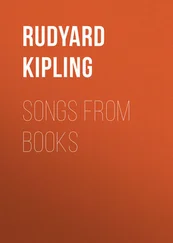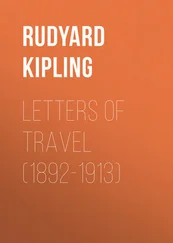Rudyard Kipling - From Sea to Sea; Letters of Travel
Здесь есть возможность читать онлайн «Rudyard Kipling - From Sea to Sea; Letters of Travel» — ознакомительный отрывок электронной книги совершенно бесплатно, а после прочтения отрывка купить полную версию. В некоторых случаях можно слушать аудио, скачать через торрент в формате fb2 и присутствует краткое содержание. Жанр: foreign_prose, foreign_language, на английском языке. Описание произведения, (предисловие) а так же отзывы посетителей доступны на портале библиотеки ЛибКат.
- Название:From Sea to Sea; Letters of Travel
- Автор:
- Жанр:
- Год:неизвестен
- ISBN:нет данных
- Рейтинг книги:5 / 5. Голосов: 1
-
Избранное:Добавить в избранное
- Отзывы:
-
Ваша оценка:
- 100
- 1
- 2
- 3
- 4
- 5
From Sea to Sea; Letters of Travel: краткое содержание, описание и аннотация
Предлагаем к чтению аннотацию, описание, краткое содержание или предисловие (зависит от того, что написал сам автор книги «From Sea to Sea; Letters of Travel»). Если вы не нашли необходимую информацию о книге — напишите в комментариях, мы постараемся отыскать её.
From Sea to Sea; Letters of Travel — читать онлайн ознакомительный отрывок
Ниже представлен текст книги, разбитый по страницам. Система сохранения места последней прочитанной страницы, позволяет с удобством читать онлайн бесплатно книгу «From Sea to Sea; Letters of Travel», без необходимости каждый раз заново искать на чём Вы остановились. Поставьте закладку, и сможете в любой момент перейти на страницу, на которой закончили чтение.
Интервал:
Закладка:
There was an inlaid ivory door, set in lintel and posts crusted with looking-glass – all apparently old work. This opened into a darkened room where there were gilt and silver charpoys, and portraits, in the native fashion, of the illustrious dead of Boondi. Beyond the darkness was a balcony clinging to the sheer side of the Palace, and it was then that the Englishman realised to what a height he had climbed without knowing it. He looked down upon the bustle of the Treasury and the stream of life flowing into and out of the Gate of the Fishes where the big drums lie. Lifting his eyes, he saw how Boondi City had built itself, spreading from west to east as the confined valley became too narrow and the years more peaceable. The Boondi hills are the barrier that separates the stony, uneven ground near Deoli from the flats of Kotah, twenty miles away. From the Palace balcony the road to the eye is clear to the banks of the Chumbul River, which was the Debatable Ford in times gone by and was leaped, as all rivers with any pretensions to a pedigree have been, by more than one magic horse. Northward and easterly the hills run out to Indurgarh, and southward and westerly to territory marked "disputed" on the map in the present year of grace. From this balcony the Raja can see to the limit of his territory eastward, his empire all under his hand. He is, or the Politicals err, that same Ram Singh who was installed by Tod in 1821, and for whose success in killing his first deer, Tod was, by the Queen-Mother of Boondi, bidden to rejoice. To-day the people of Boondi say: "This Durbar is very old; so old that few men remember its beginning, for that was in our father's time." It is related also of Boondi that, on the occasion of the Queen's Jubilee, they said proudly that their ruler had reigned for sixty years, and he was a man. They saw nothing astonishing in the fact of a woman having reigned for fifty. History does not say whether they jubilated; for there are no Englishmen in Boondi to write accounts of demonstrations and foundation-stone laying to the daily newspaper, and Boondi is very, very small. In the early morning you may see a man pantingly chased out of the city by another man with a naked sword. This is the mail and the mail-guard; and the effect is as though runner and swordsman lay under a doom – the one to fly with the fear of death always before him, as men fly in dreams, and the other to perpetually fail of his revenge.
The warden unlocked more doors and led the Englishman still higher, but into a garden – a heavily timbered garden with a tank for gold fish in the midst. For once the impassive following smiled when they saw that the Englishman was impressed.
"This," said they, "is the Rang Bilas." "But who made it?" "Who knows? It was made long ago." The Englishman looked over the garden-wall, a foot-high parapet, and shuddered. There was only the flat side of the Palace, and a drop on to the stones of the zigzag scores of feet below. Above him was the riven hillside and the decaying wall of Taragarh, and behind him this fair garden, hung like Mahomet's coffin, but full of the noise of birds and the talking of the wind in the branches. The warden entered into a lengthy explanation of the nature of the delusion, showing how – but he was stopped before he was finished. His listener did not want to know "how the trick was done." Here was the garden, and there were three or four storeys climbed to reach it. At one end of the garden was a small room, under treatment by native artists who were painting the panels with historical pictures, in distemper. Theirs was florid polychromatic art, but skirting the floor was a series of frescoes in red, black, and white, of combats with elephants, bold and temperate as good German work. They were worn and defaced in places; but the hand of some bygone limner, who did not know how to waste a line, showed under the bruises and scratches, and put the newer work to shame.
Here the tour of the Palace ended; and it must be remembered that the Englishman had not gone the depth of three rooms into one flank. Acres of building lay to the right of him, and above the lines of the terraces he could see the tops of green trees. "Who knew how many gardens, such as the Rang Bilas, were to be found in the Palace?" No one answered directly, but all said that there were many. The warden gathered up his keys, and, locking each door behind him as he passed, led the way down to earth. But before he had crossed the garden the Englishman heard, deep down in the bowels of the Palace, a woman's voice singing, and the voice rang as do voices in caves. All Palaces in India excepting dead ones, such as that of Amber, are full of eyes. In some, as has been said, the idea of being watched is stronger than in others. In Boondi Palace it was overpowering – being far worse than in the green shuttered corridors of Jodhpur. There were trap-doors on the tops of terraces, and windows veiled in foliage, and bull's-eyes set low in unexpected walls, and many other peep-holes and places of vantage. In the end, the Englishman looked devoutly at the floor, but when the voice of the woman came up from under his feet, he felt that there was nothing left for him but to go. Yet, excepting only this voice, there was deep silence everywhere, and nothing could be seen.
The warden returned to the Chutter Mahal to pick up a lost key. The brass table of the planets was sighing softly to itself as it swung to and fro in the wind. That was the last view of the interior of the Palace, the empty court, and the swinging, sighing astrolabe.
About two hours afterwards, when he had reached the other side of the valley and seen the full extent of the buildings, the Englishman began to realise first that he had not been taken through one-tenth of the Palace; and secondly, that he would do well to measure its extent by acres, in preference to meaner measures. But what made him blush hotly, all alone among the tombs on the hillside, was the idea that he with his ridiculous demands for eggs, firewood, and sweet drinking water should have clattered and chattered through any part of it at all.
He began to understand why Boondi does not encourage Englishmen.
XVIII
OF THE UNCIVILISED NIGHT AND THE DEPARTURE TO THINGS CIVILISED. SHOWING HOW A FRIEND MAY KEEP AN APPOINTMENT TOO WELL.
"Let us go hence my songs, she will not hear. Let us go hence together without fear." But Ram Baksh the irrepressible sang it in altogether a baser key. He came by night to the pavilion on the lake, while the sepoys were cooking their fish, and reiterated his whine about the devildom of the country into which the Englishman had dragged him. Padre Martum Sahib would never have thus treated the owner of sixteen horses, all fast and big ones, and eight superior "shutin-tongas." "Let us get away," said Ram Baksh. "You are not here for shikar , and the water is very bad." It was indeed, except when taken from the lake, and then it only tasted fishy. "We will go, Ram Baksh," said the Englishman. "We will go in the very early morning, and in the meantime here is fish to stay your stomach with."
When a transparent piece of canvas, which fails by three feet to reach ceiling or floor, is the only bar between the East and the West, he would be a churl indeed who stood upon invidious race distinctions. The Englishman went out and fraternised with the Military – the four-rupee soldiers of Boondi who guarded him. They were armed, one with an old Tower musket crazy as to nipple and hammer, one with a native-made smooth-bore, and one with a composite contrivance – English sporting muzzle-loader stock with a compartment for a jointed cleaning-rod, and hammered octagonal native barrel, wire-fastened, a tuft of cotton on the foresight. All three guns were loaded, and the owners were very proud of them. They were simple folk, these men-at-arms, with an inordinate appetite for broiled fish. They were not always soldiers they explained. They cultivated their crops until called for any duty that might turn up. They were paid now and again, at intervals, but they were paid in coin and not in kind.
Читать дальшеИнтервал:
Закладка:
Похожие книги на «From Sea to Sea; Letters of Travel»
Представляем Вашему вниманию похожие книги на «From Sea to Sea; Letters of Travel» списком для выбора. Мы отобрали схожую по названию и смыслу литературу в надежде предоставить читателям больше вариантов отыскать новые, интересные, ещё непрочитанные произведения.
Обсуждение, отзывы о книге «From Sea to Sea; Letters of Travel» и просто собственные мнения читателей. Оставьте ваши комментарии, напишите, что Вы думаете о произведении, его смысле или главных героях. Укажите что конкретно понравилось, а что нет, и почему Вы так считаете.












